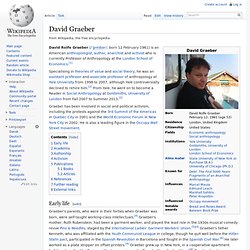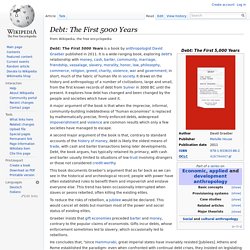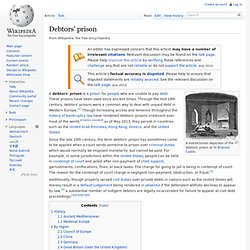

Ewald Engelen: Niemand weet wie onze staatsschuld bezit. De inzet van dit verhaal: 354.877.000.000 euro.

Of liever gezegd, 355 miljard. Dat geld zijn u en ik op dit moment verschuldigd aan vermoedelijk enkele duizenden beleggers. Dat is namelijk de Nederlandse staatsschuld. Die 355 miljard euro is inzet van verhitte politieke discussies. Het kabinet-Rutte vindt dit bedrag te hoog. Maar aan wie zijn we dit bedrag eigenlijk verschuldigd? Je zou denken dat deze vragen met één telefoontje naar de Generale Thesaurie, de schatkistbewaarder die de staatsschuld beheert, beantwoord kunnen worden. Maar welk buitenland? Niemand lijkt in staat om een gedetailleerd beeld van onze crediteuren te schetsen. Niemand lijkt in staat om een gedetailleerd beeld van onze crediteuren te schetsen Iedere keer als ik ‘geen idee’ hoor, is mijn eerste gedachte: dat wil je toch weten? Miljarden naar de bank Ook voor de Nederlandse staatsschuld zijn het roerige jaren geweest.
De maanden en jaren hierna wordt er nog veel meer geld gezocht. Twee markten Onzichtbare kopers. David Graeber. David Rolfe Graeber (/ˈɡreɪbər/; born 12 February 1961) is an American anthropologist, author, anarchist and activist who is currently Professor of Anthropology at the London School of Economics.[1] Specialising in theories of value and social theory, he was an assistant professor and associate professor of anthropology at Yale University from 1998 to 2007, although Yale controversially declined to rehire him.[2] From Yale, he went on to become a Reader in Social Anthropology at Goldsmiths, University of London from Fall 2007 to Summer 2013.[3] Graeber has been involved in social and political activism, including the protests against the 3rd Summit of the Americas in Quebec City in 2001 and the World Economic Forum in New York City in 2002.

He is also a leading figure in the Occupy Wall Street movement. Early life[edit] Graeber graduated from Phillips Academy Andover in 1978 and received his B.A. from the State University of New York at Purchase in 1984. @davidgraeber. Debt: The First 5000 Years. A major argument of the book is that when the imprecise, informal, community-building indebtedness of "human economies" is replaced by mathematically precise, firmly enforced debts, widespread impoverishment and violence are common results which only a few societies have managed to escape.

This book documents Graeber's argument that as far back as we can see in the historical and archeological record, people with power have often established rules to benefit them and impoverish and enslave everyone else. This trend has been occasionally interrupted when slaves or peons rebelled, often killing the existing elites. Graeber insists that gift economies preceded barter and money, contrary to the popular claims of economists.
Gifts incur debts, whose enforcement sometimes led to slavery, which occasionally led to rebellions. The Debt We Shouldn’t Pay by Robert Kuttner. © The Saul Steinberg Foundation/Artists Rights Society, New York Drawing by Saul Steinberg At the heart of the argument about how to revive a depressed economy is the question of debt. When political leaders and economists debate the subject, they refer mostly to public debt. To conservatives, the economy’s capacity for recovery is impaired by too much government borrowing. These escalating obligations, they claim, will be passed along to our children and grandchildren, leaving America a poorer country. As important as this debate is, there’s something missing. It was private speculative debts—exotic mortgage bonds financed by short-term borrowing at very high costs—that produced the crisis of 2008.
The debt debate is reminiscent of Tom Stoppard’s Rosencrantz and Guildenstern Are Dead . David Graeber. Debtors' prison. A debtors' prison is a prison for people who are unable to pay debt.

These prisons have been used since ancient times. Through the mid 19th century, debtors' prisons were a common way to deal with unpaid debt in Western Europe.[1] Though increasing access and lenience throughout the history of bankruptcy law have rendered debtors' prisons irrelevant over most of the world,[citation needed] as of May 2013, they persist in countries such as the United Arab Emirates, Hong Kong, Greece, and the United States. Since the late 20th century, the term debtors' prison has sometimes come to be applied when a court sends someone to prison over criminal duties which would normally be imposed monetarily, but cannot be paid. For example, in some jurisdictions within the United States, people can be held in contempt of court and jailed after non-payment of child support, garnishments, confiscations, fines, or back taxes.
The charge for going to jail is being in contempt of court. History[edit] Ohio 1828. Debt-The First 5000 Years. Topics debt, ancient, human, honor, credit, economic, medieval, history, slavery, cambridge university, middle ages, axial age, human beings, oxford university, great capitalist, capitalist empires, slave trade, economic history, great deal Identifier Debt-The_First_5000_YearsMediatype textsScanner Internet Archive Python library 0.5.0Identifier-access ark:/13960/t20c7hx7gImagecount 542Ppi 300Ocr ABBYY FineReader 9.0 Debt-The First 5000 Years Pages542LanguageEnglishCollectionfolkscanomy_economics; folkscanomy; additional_collections.
